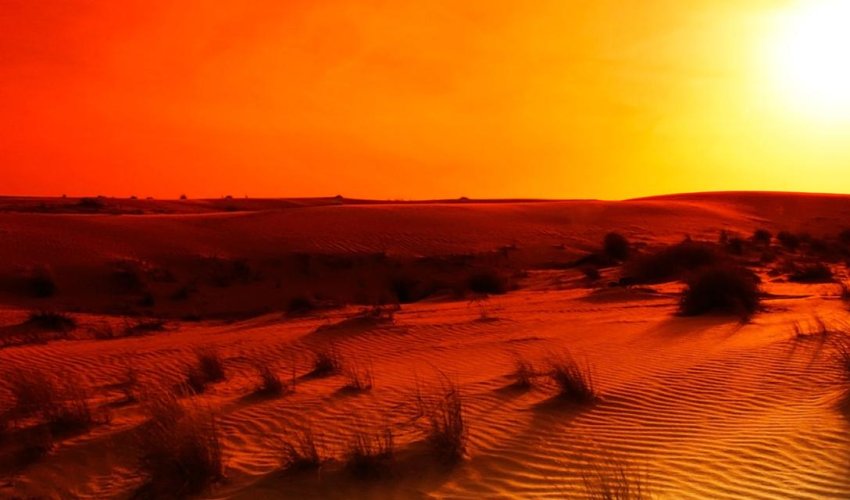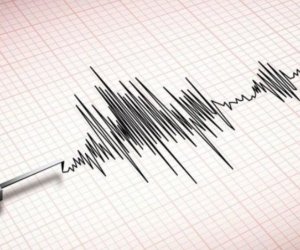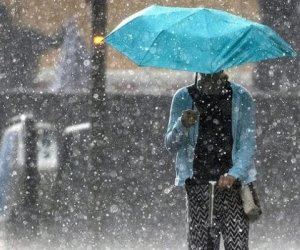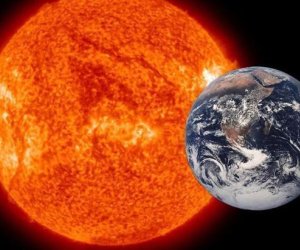How hot could the Earth get?

It has been getting a little warm lately. In November 2015, Brits experienced the hottest November days ever recorded in the UK. That was shortly followed by news from the World Meteorological Organization that 2015 is likely to be the hottest year since records began.
Global temperatures are now set to reach 1 °C above pre-industrial levels. That is halfway to the politically-agreed upper limit of 2 °C, which was set by world leaders in 2009.
For now at least, it seems the world’s temperature is going to go up and up. So how hot could the Earth really get? Is there any limit to the amount of warming humans could eventually cause?
Climate change is not a new experience for Earth. The planet has gone through countless temperature fluctuations over its 4.6-billion-year history, from frozen snowball to blazing tropical heat.
But despite all these changes, Earth always swings back into roughly the same temperature range. That is because it has mechanisms in place to control its own temperature.
A key one is the greenhouse effect. Greenhouse gases in the air, mainly carbon dioxide, methane and water vapour, trap radiation from the Sun and act like a thermal blanket around the planet.
Without the greenhouse effect, the Earth would have an average temperature of -18 °C and be covered in ice. Life as we know it would not be able to survive. The greenhouse effect is clearly a good thing, but like all good things, it is possible to have too much.
Humans have only been here for a relatively short time, yet we have managed to become the most significant driver of climate change on the planet. By burning fossil fuels and cutting down trees, we are releasing more and more carbon dioxide into the atmosphere, and that has caused temperatures to rise.
Between 2000 and 2010, our rates of emissions more than quadrupled from the previous decade, and so far there is little sign of this upwards trend reversing. The question is, how much will all these extra greenhouse gases heat the planet over the coming decades and centuries?
To predict the state of the planet in the future, scientists build computer models that simulate what will happen to the Earth’s climate. These models are vastly complicated, but they ultimately rely on basic physics such as how air and water behave. By incorporating both man-made and natural changes, the models can estimate how the climate will change when a given amount of greenhouse gases is emitted.
These predictions are compiled into reports by the Intergovernmental Panel on Climate Change (IPCC), most recently in 2013-2014. They suggest that, if our greenhouse gas emissions continue to increase as they have been over the last 50 years, then by the end of this century the world will be at least 4 °C warmer than it was before the Industrial Revolution.
What’s more, the warming will not stop at the end of this century.
The further forward we go in time, the harder it is to predict what will happen.
Models currently suggest that we will reach 7 °C above pre-industrial levels by 2200, but that temperatures will then stabilise, provided we have stopped emitting greenhouse gases.
However, we cannot be certain of this, because the Earth’s climate is a complex system. As the climate warms, several processes operate that can cause even more warming.
For instance, snow and ice melt away in a warmer world, exposing dark ground that absorbs the Sun’s heat rather than reflecting it. Similarly, more water vapour evaporates from the surface, and since water vapour is a greenhouse gas this traps even more heat.
The oceans actually slow climate change, because carbon dioxide dissolves into them from the air. But warmer oceans can hold less carbon dioxide, leaving ever more in the atmosphere.
These feedbacks are relatively well understood, but others are harder to unravel: for example, how changing cloud cover will affect the climate, or when methane locked up in permafrost at the poles will be released. Climate models can only make predictions based on what we know, so as temperatures rise further beyond anything humans have experienced, their predictions become less reliable.
So rather than trying to predict what the climate will do from first principles, we can take another approach: we can look at what has happened in the past.
(BBC)
www.ann.az
Similar news
Similar news
Latest news 
More news 



































 Photo
Photo 



 Video
Video 

